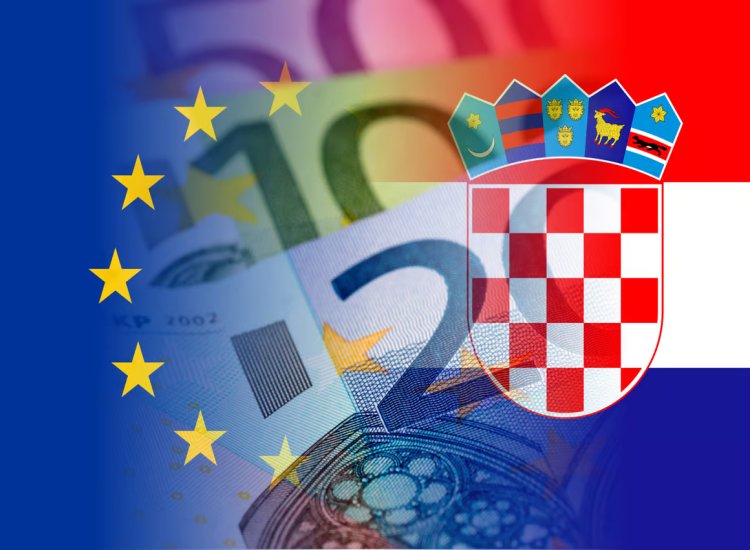

Croatia has switched to the euro and entered Europe’s passport-free zone, two major milestones for the country after joining the European Union nearly a decade ago.
At midnight (11pm Saturday Irish time), the Balkan nation bids farewell to its kuna currency and becomes the 20th member of the eurozone.
It is the 27th nation in the Schengen passport-free zone, the largest in the world, allowing more than 400 million people to move freely within its members.
Experts say the introduction of the euro will help insulate the Croatian economy at a time when inflation is skyrocketing worldwide after Russia’s invasion of Ukraine drove up food and vegetable prices.
But feelings among Croatians are mixed. While welcoming the end of border controls, some are concerned about the changeover to the Euro, with right-wing opposition groups saying it only benefits big countries like Germany and France.
Many Croatians fear that the introduction of the Euro will lead to higher prices, especially that companies will round off price points when converting.
For tourist agency employee Marko Pavic, “Croatia joins an elite club. The Euro was already a value measure – psychologically it’s nothing new – while entry into Schengen is fantastic news for tourism,” he told AFP, reports RTE.
The Euro is already widely used in Croatia. About 80% of bank deposits are denominated in euros, and Zagreb’s main trading partners are located in the eurozone.
Officials defended the decision to join the eurozone and Schengen, with Prime Minister Andrej Plenkovic saying these are “two strategic goals of a deeper EU integration”, reports RTE.
Croatia, a former Yugoslav republic of 3.9 million that fought a war of independence in the 1990s, joined the European Union in 2013.
Experts say the introduction of the euro will ease credit conditions amid economic woes.
Croatia’s inflation rate reached 13.5% in November, compared to 10% in the euro area.
Analysts point out that eastern EU members with non-eurozone currencies, such as Poland or Hungary, were even more vulnerable to rising inflation.
While some Croatians complained about the decline of the national currency, HNB governor Boris Vujcic said that while it was a sentimental moment for him, it was “the only policy that made sense”.
The Kuna was introduced in 1994 during the War of Independence.
Kuna means marten, a weasel-like carnivore whose fur served as a means of payment in the Middle Ages.
Today Vujcic will symbolically withdraw Euros from an ATM in the centre of Zagreb.
Interior and foreign ministers will hold brief ceremonies at border crossings with their European counterparts Croatia, Slovenia and Hungary, respectively, while bloc leader Ursula von der Leyen will visit the country.
Local newspapers praised the two events, with the best-selling newspaper Vecernji List calling them the “crown of EU membership (Zagreb)”.
In recent days customers have been queuing outside banks and ATMs to withdraw cash, fearing payment problems soon after the transition period.
Croatia’s entry into the Schengen borderless area will also boost the Adriatic country’s main tourism industry, which accounts for 20% of GDP.
Long queues at the 73 land border crossings to Slovenia and Hungary are a thing of the past.
Due to technical problems, border controls at airports will not end before March 26th.
Croatia will continue to apply strict border controls on its eastern border with non-EU neighbors Bosnia, Montenegro and Serbia.
Fighting illegal immigration remains the biggest challenge in protecting the EU’s longest external land border at 1,350 km.
Tell us your thoughts in the Facebook post and share this with your friends.


